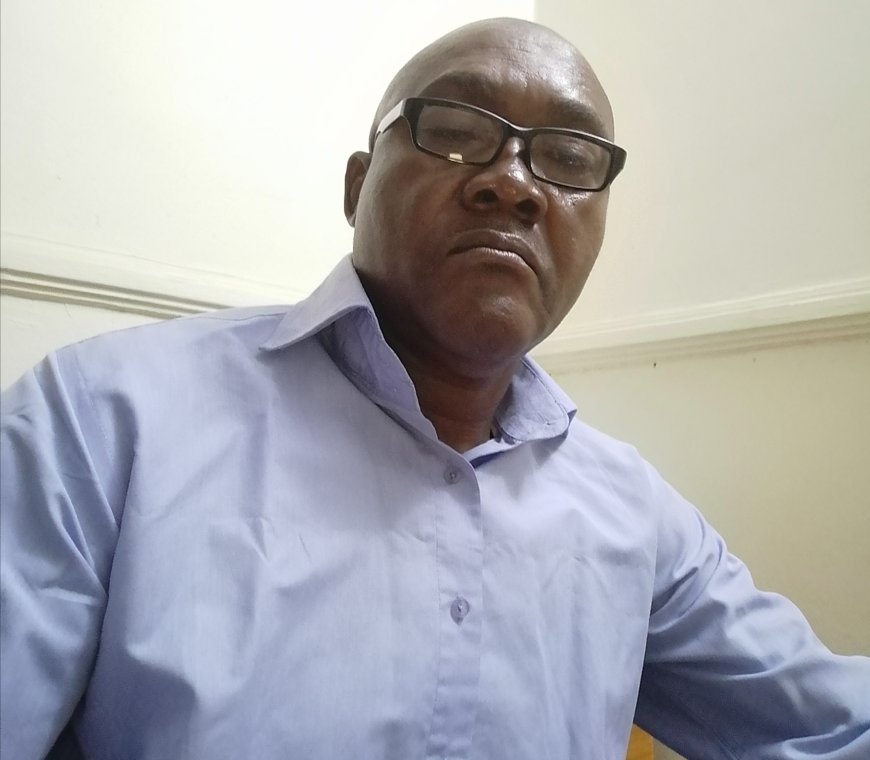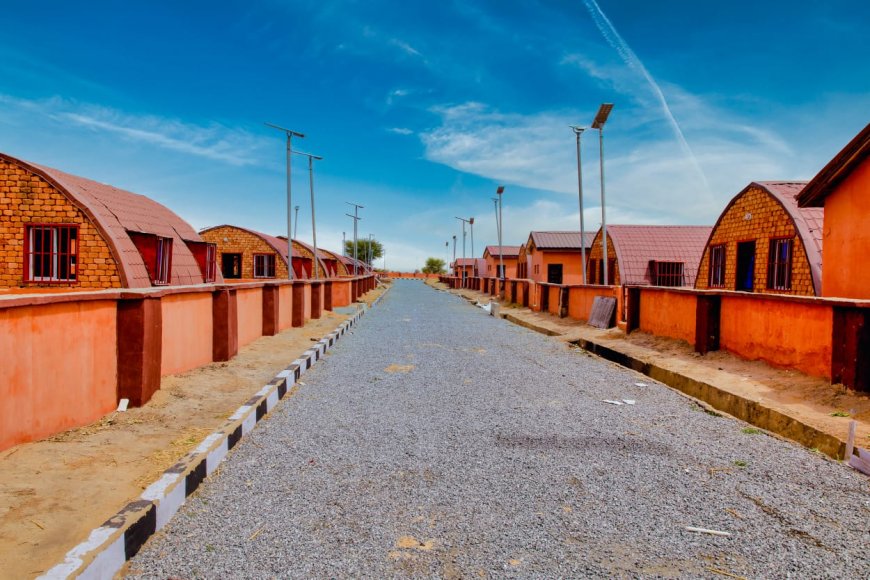Nigeria's Septic Sore

By Ernest Omoarelojie
On Sunday, July 24, 2022, Nigerians woke up to the gruesome news that a number of their country’s soldiers, including Captain Samuel Attah and Lieutenant Ibrahim Suleiman, two highly trained professional soldiers, were killed in a terrorist ambush in Bwari, a suburb of the Federal Capital Territory, FCT. They were said to be responding to a distress call during which they ended up spending extended time fruitlessly combing the location and environs. In what seemed to be a break, they sited flashes of night-time lights, which on enquiry, turned out to be from a hill location over which the terrorists not only watched over the suburb but also monitored movements of the mobilized military personnel. Nigerians were told in the voice message of how the terrorists watch the security men embark on the ill-fated search up the hill and how they were set up for the deadly ambush.
Until a viral social media (WatsaPP) voice note, allegedly made by one of the survivors, made the rounds and explained how the dead soldiers were killed in the ambush that followed, neither the Army hierarchy nor Defence Headquarters deemed it necessary to provide answers to the question about how such a high number of soldier could so easily be wiped out in an ambush which could have been prevented with the use of Armoured Personnel Carrier, APC.
Even when the voice note provided some insights into the incident, one of which is that indeed the soldiers had APC vehicles which they had to abandon due to inhospitable terrain, the answer to many other questions remained unanswered. Observers kept asking questions about why the troop did not have the foresight to adopt a proactive anti-ambush formation given past experiences, knowing full well that a confrontation was imminent. This writer is not aware that any answer has been provided or that indeed, someone has been held culpable for that single lapse that ended the lives of about eight or so soldiers. The incident was not the first example of the seeming rot in the system.
Barely a month earlier, precisely on June 30, 2022, forty-eight persons, including thirty-four soldiers, eight policemen and six civilians, were wasted in another terrorist ambush in the now notorious Shiroro council area of Niger state. Even as tears flowed and emotions flared, the Nigerian Army hierarchy did not deem it imperative to provide convincing explanation over how such number of its trained personnel could be so easily wasted in the face of preventable measures. It was another glaring evidence that the country was contending against the pains of a septic sore, it had the challenge of waking up some of its nerves that have gone numb.
The 2022 events seem to be paling into insignificance compared to the encore being witnessed in 2023, particularly along the same Shiroro area, the country’s axis of hell. The August 17 debacle that took place along Tergina-Kontagora road is one to consider for all its implications.
In a statement, the Defence Headquarters confirmed that indeed, an ambush took place in the said location. It accepted that the ambush resulted in the death of its personnel, including three officers and twenty-two men. It added that a military chopper deployed to evacuate the casualties crashed afterwards, killing another set of military personnel, including the crew. However, while Nigerians were still ruing the import of the disclosure, news made the round that elements of the same group that claimed responsibility for the ambush came out to say that they also brought the chopper down. Even before that addition was digested, reports from the scene had locals corroborating the claims made by bandits. According to the latter, the chopper flew low over the enclave known to be the bandits’ operating hub, little wonder no one was surprise when it came crashing down. I am sure the legendary Afro beat creator, Fela Anikulapo Kuti would be proud to know that the vent captured the essence of his epic song, ‘Double wahala for dedi bodi and di owner of dedi bodi…’
Rather than lay to rest the events that led to the unfortunate incidents, the position of the DHQ managed to open up a seeming Pandora Box. More than anything else, Nigerians only managed to see half truths and outright misrepresentation of facts. Like an American axiom would have it, half truth is a whole lie.
Clearly, the difference between what happened on August 17, 2023 and those in previous years is that the perpetrators seem to have added a deadly novelty. They did not only ambush and kill the nation’s trained military personnel, they waited to dispatch more. As it turned, they successfully made good the plan when they downed the chopper as they claimed, with more highly trained personnel. It was more akin to exposing the nation’s security lapses with aplomb even while the nation is still pumping billions into the course seemingly without commensurate results.
One of the nagging issues the DHQ failed to deal with in its statement is how the bandits had the nerve not only to repeat their ambushing run in the area for the umpteenth time but also remain there long enough to bring down the chopper deployed to ferry out the first set of casualties. The other is how the said chopper was allowed to fly low, as claimed by locals, over a known bandit enclave, an area that had not been cleared by the military after the deadly ambush. How could military personnel and men be so exposed? At the time it released its report, the DHQ ought to have known that providing answers to the questions above would add more credibility verve than the decision to upbraid the country’s media for filing reports it said undermined the sensibilities of families of the killed military and lower the morals of serving personnel. Taking the latter route is akin to hiding behind a finger or being clever by half. The establishment can do better than that.
A lie told several times is by default, taken as truth. Bandit attacks around the Shiroro general area is rampart. They are not new. Giving excuses each time it happens seems to indicate either of two things-officials are complicit or that the bandits are far better than the country’s fighting forces. That is why the DHQ must be introspective while reacting to incidents that appear to underscore the reactive role its personnel men have compelled to play in the war against terror. Right now, official facts, like the one presented by the DHQ over the Niger incidents, do not stand in the face of flying conjecture and conspiracy theories.
For the records, there are indubitable facts about the Shiroro general area. It is the hotbed of banditry in Niger state. It has almost taken over as the country’s axis of hell, as far as the war against banditry is concerned. This much is evident from speaking with and or to locals. This writer is aware that the area between Kamuku Hills, near Kagara, Tergina and environs are filled with bandits’ enclaves. As a matter of fact, abductions, castle rustling, killings, and general insecurity in the areas mentioned are the rule rather than exception. The reason is not far to seek.
The areas listed above are the known are the transit route of the Dogo Gide-led bandits where they have a number of transit camps. From these camps, they extended their tentacles to surrounding communities through which they shuttle between Niger and Zamfara states, gathering kidnapped victims for ransom and pilfering solid minerals even as they impose taxes on all and sundry. They show no mercy on any and every defaulter and perceived obstacles-military or civilian. Defaulters are summarily executed.
Over time, the bandits successfully sacked some of the locals from both their homes and farms. From these outlets, they often visit adjoining towns, including Kagara, to pick individuals at their fancy, with little or no opposition at all. These are facts security personnel in the area know so well. The case with the old Army outpost in Zara-Kusherki is even more pathetic. For years, the bandits perfected a near, risk-free ambush style during which they often wipe out military personnel manning it. It got so bad that it was abandoned after the loss of numerous servicemen.
Following the abandonment, surrounding communities became even more exposed to the whims and caprices of the rampaging marauders. For instance, the bandits singled out the village head, Masa'ud Abubakar, and killed him in 2021 for not being loyal to them. Before his death on the fateful day, he made several calls to the soldiers who were less than four kilometres away from his palace.
They also murdered the head of the area’s vigilante group, one Habila Abaki, for the same offense. The District head, late Alhaji Aliyu Mohamed Kusherki, had to abscond from the town when he realized that he was being targeted. The man, a court registrar, scurried to Abuja where he died recently almost five years after fleeing his home.
Before now, some villages surrounding Zara-Kurseki were co-opted by the bandits as information agents. Locals say Kukoki, Anawanka and among others, Kurebe belong to this siege-category where the bandits freely take over wives of locals who dare not make a whimper for fear of summary execution.
Currently, eight communities, including Kusasu, Kwai, Chukuba, Gulana, Apai, Nakuna, Yanka and Kurebe surrendered and pledged their loyalty to Dogo Gide. They are also reported to be addressing him as their governor in a state where there is a constitutional authority.
The Nigerian Army, alongside the DHQ, need to be reminded that where conjectures fester, conspiracy theories take the form of truths. This appears to be the case with the country’s security situation where there seems to a viral narrative that is almost infallible. When a security threat lasts for so long, it says, it pays more to look in the direction of state actors. Nigeria has invested so much on security matters without any seeming commensurate results. For many, it is no longer impossible that those paid to secure the country may, themselves be involved in its ongoing compromised state. The case was made against the military in the Niger Delta.
It is therefore not impossible that something similar may have been unfolding in the war against banditry, terrorism, etc. The DHQ must learn to deliver a more credible response to the unfolding drama in the seemingly endless state of insecurity in the country. Only then will it be likely for Nigerians not to look the other way for what to believe. Until then, the country’s incurable septic sore will continue to fester, by commission or omission and the Nigerian military will be held culpable despite the sacrifice it has made.
What's Your Reaction?





























































